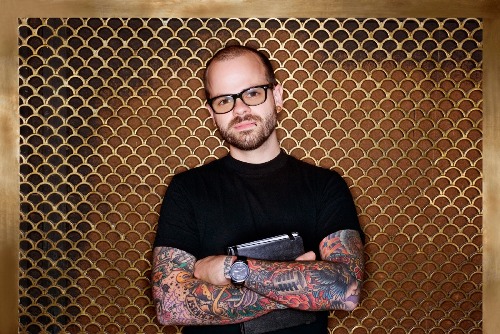In just 10 days since I first noted that Presbyterian ratification for the ordination of partnered gay and lesbian clergy looked promising, the prospects have improved further. Last week I observed that if all the remaining presbyteries were to vote as they did on the correspondin resolution last year, the result would be a narrow loss. Victory looked promising, only because the chances are that they will not vote the same way - some at least seemed likely to switch from No to Yes. Over just the past few days, three more have done just that, taking the total making the switch to 12 - compared with just a single one which has switched the other way, from Yes to No. This makes a net gain of 11 - against just the 9 which are needed. It is likely that there will be others too, making the switch in the weeks ahead. Already, the number approving ratification (55) is more than half way to the 87 required - just 42 to go!
I have reproduced below the post I published last week, showing how the numbers have changed in just seven days:
*****
Last year, the Presbyterian Church of the USA voted to approve changes in the criteria for ordination of clergy, in terms which do not discriminate against partnered gay or lesbian candidates. The resolution removes a paragraph which includes the requirement
to live either in fidelity within the covenant of marriage between a man and a woman (W-4.9001), or chastity in singleness.
and inserts instead:
Standards for ordained service reflect the church’s desire to submit joyfully to the Lordship of Jesus Christ in all aspects of life (G-1.0000). The governing body responsible for ordination and/or installation (G.14.0240; G-14.0450) shall examine each candidate’s calling, gifts, preparation, and suitability for the responsibilities of office. The examination shall include, but not be limited to, a determination of the candidate’s ability and commitment to fulfill all requirements as expressed in the constitutional questions for ordination and installation (W-4.4003). Governing bodies shall be guided by Scripture and the confessions in applying standards to individual candidates.”
In effect, this is a vote for full inclusion of LGBT Presbyterians in the life of the Church. The vote at General Assembly must be ratified by a majority of local presbyteries before it takes effect. 2010 was not the first time that General Assembly voted in favour of inclusion: similar resolutions were passed in 2009, and and - but failed to secure ratification. This year could be different.
An analysis of the votes held so far shows that presbyteries voting in favour of ratification presently lead those opposed by 46 55 (28/02) to 34 4o, with 93 78 left to vote. While we cannot predict with certainty what those votes will be until they have been concluded, there are useful clues in how they voted previously. My own investigation of the spreadsheet shows that with 46 55 presbyteries having voted in support, only 41 32 more are needed to secure ratification. Conversely, the 40 voting against still need to add 53 47 presbyteries to defeat the proposal. While we cannot predict with certainty how the remaining presbyteries will vote, there are clues. For each one, the published spreadsheet shows how it voted on the previous similar measure from General Assembly 2009. If each of them were to vote in precisely the same way as it did last time around, the result would be as close as it gets:
Votes in favour - 86 89; Tie - 2; Votes against - 78 82. Presbyteries with tied votes count as "no", so the effective result would be Yes - 86 89, No - 87 84 - and a win for inclusion.
However, there is no reason to suppose that they will vote the same way as before. Where votes have already been held, there has been a clear increase in support. Just the tiniest movement in favour would tilt at least the two tied votes to yes votes, which would be enough to tilt the balance. The record from the raw votes cast shows than in fact, across all presbyteries the percentage level of support increased by an average of 5%. If that applies uniformly across those presbyteries that have not yet voted, there will be a further 8 switching from "No" to "Yes", adding to the 12 that have already done so. (So far, only one has switched the other way, from support to opposition). That will lead to:
Votes in favour - 102; Votes against - 71, and ratification for inclusion by a clear margin.
The prospects look good.
But, as the folk at More Light Presbyterians constantly remind us, progress doesn't just happen - it takes hard work and organisation. This is why openly gay pastor Rev. Mel White will be speaking about gay social issues at St. Mark Presbyterian Church in Newport Beach from March 4 to 6. More Light Presbyterians have a permanent feature in their newsletters advising of local workshops, where participants can learn how to help in influencing their own congregations.
Success in the ratification drive is not yet guaranteed, but progress is promising. With the continued hard work of so many, and the help of the Holy Spirit, the prospects are clearly encouraging - if not this year, then next. Change is on the way - and of the biggest Mainline Protestant churches in the US, that will leave only the Methodists not (yet) approving full inclusion for LGBT clergy. (That too will change in the not too distant future)
Related articles
- Breaking News! Rev. Jean Southard Acquitted by GAPJC in Marriage Equality Trial (mlp.org)
- PCUSA: Don't Lose Focus on Amendment A (shuckandjive.org)
- New Year's Resolution: End Discrimination in the PCUSA (shuckandjive.org)
- A New/Old Resource for Amendment 10A (shuckandjive.org)



